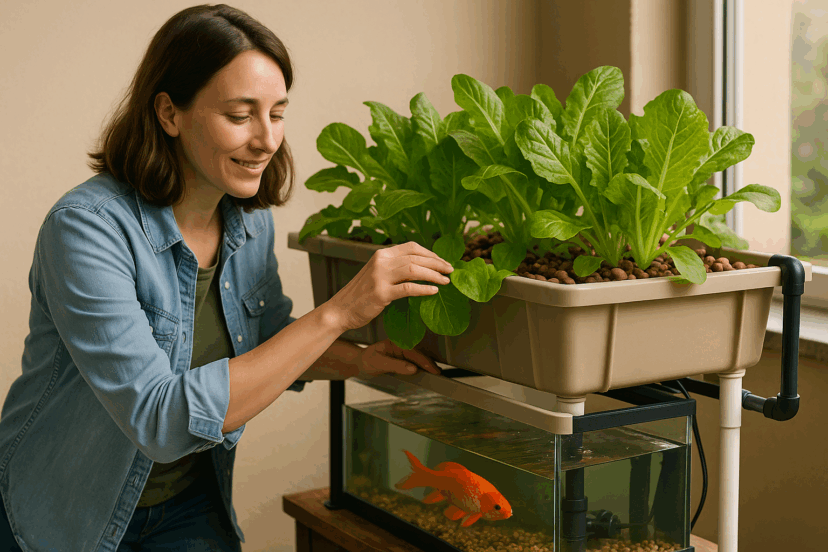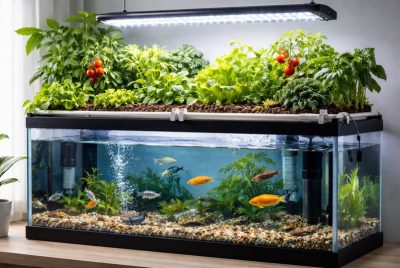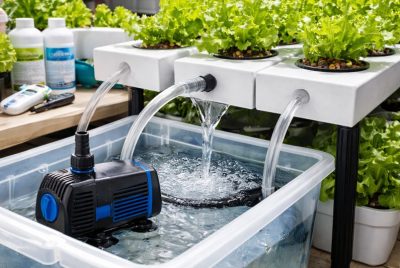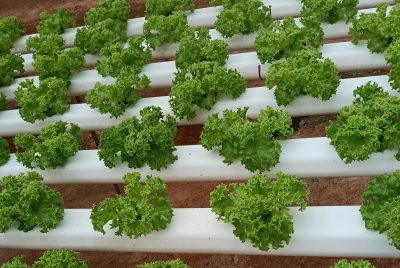Hydroponics vs Aquaponics: Which System Boosts Plant Growth?
We may earn a commission for purchases made using our links. Please see our disclosure for more details.
You probably know the feeling—that moment of standing in your kitchen or garage, staring at your first hydroponic kit or YouTube tutorial, heart pounding with excitement and uncertainty. Maybe you asked yourself, “Is hydroponics really right for me? Or should I go for aquaponics?” The classic hydroponics vs aquaponics question is one every indoor gardener faces at some point.
Let me walk you through my own journey, mistakes and all, so you can make the best choice for your indoor gardening adventure—whether you’re starting a cozy herb garden or dreaming of a commercial green haven. My goal is to help you navigate the hydroponics vs aquaponics decision with confidence.
What Is Hydroponics?
When comparing hydroponics vs aquaponics, it helps to start with the basics. Hydroponics is the art and science of growing plants without soil, using water and nutrients instead. I remember my first deep water culture (DWC) setup—a tangle of tubes, tanks, and the faint hum of an air pump in my apartment. Hydroponic systems like Nutrient Film Technique (NFT), Ebb & Flow, and Aeroponics made me feel like a modern-day alchemist.
Core Benefits & Setups
- Faster plant growth
- Precise control over nutrients and water
- Works in small spaces—perfect for apartments or spare rooms
Hydroponics is ideal for anyone seeking high yields with minimal mess. The feeling of watching lettuce shoot up in weeks is indescribable—almost like fast-forwarding nature itself. If you’re looking for inspiration on where to begin, check out these easiest plants to grow in hydroponic systems to kickstart your gardening journey with confidence.
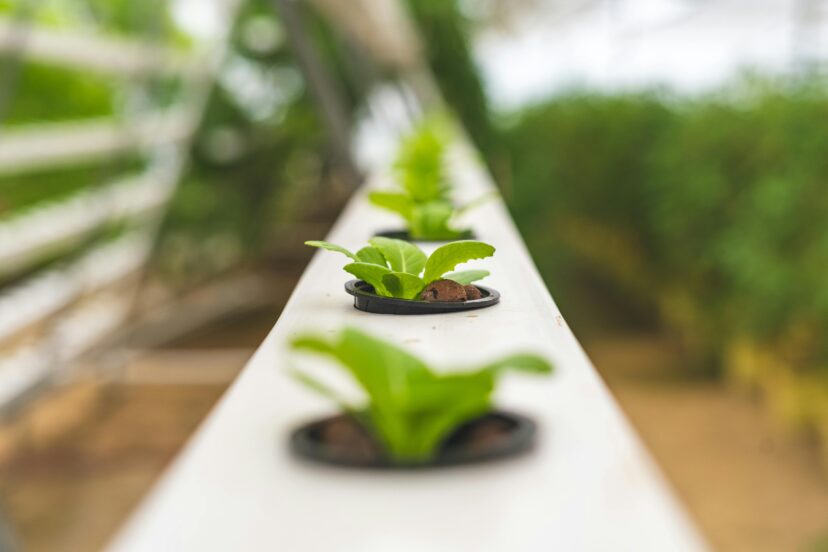
What Is Aquaponics?
Now let’s look at the other side of the hydroponics vs aquaponics coin. Aquaponics is a beautiful marriage of hydroponics and aquaculture (raising fish). Fish produce waste that supplies nutrients for your plants, and in return, the plants help clean and filter the water for the fish. You feed the fish. The first time I watched fish darting beneath my leafy greens, I realized gardening could be a symbiotic experience.
Key Benefits & Typical Setups
- Fish and plant production in a single cycle
- Media bed, deep water culture, and raft systems
- Self-sustaining, eco-friendly loop
Aquaponics drew me in for its sustainability and sense of wonder—watching two ecosystems thrive together. There’s a special joy in seeing your plants and fish flourish side by side.
Key Differences: Hydroponics vs Aquaponics
When you’re weighing your options, it helps to see it all laid out. Here’s what my journey taught me about hydroponics vs aquaponics, with all the messy, rewarding details:
| Feature | Hydroponics | Aquaponics |
| Water Use | Lower than soil gardening | Even lower, recirculates |
| Nutrients | Added as mineral salts | Provided by fish waste |
| Maintenance | Medium (monitor pH/EC) | Higher (care for fish) |
| Cost | Lower startup for small setups | Higher—fish tanks, filters |
| Eco-Friendly | Efficient, needs fertilizer | Highly sustainable, less waste |
| Yield Speed | Fast | Fast, depends on fish cycle |
| Complexity | Easier for beginners | More involved, but rewarding |
Pros and Cons
Hydroponics Pros:
- Predictable results, fast growth
- Scalable for any space
Hydroponics Cons:
- Requires ongoing purchase of nutrients
- Lacks the “circle of life” feel of aquaponics
Aquaponics Pros:
- Sustainable, less input waste
- Produces both fish and plants
Aquaponics Cons:
- Higher learning curve
- Daily fish care is essential
If you’re still on the fence about hydroponics vs aquaponics, seeing the key differences spelled out can help clarify which path fits your goals.
Commercial Potential: Which One Is Best for Business?
For aspiring entrepreneurs, the hydroponics vs aquaponics debate gets even more interesting. If you’re eyeing a side hustle—or dreaming bigger—hydroponic greens are a hit at local markets. But aquaponics? That’s a story that sells itself. Eco-conscious customers love “fish-friendly” produce, and aquaponics makes a powerful statement for sustainability.
Market Trends & Demand
- Hydroponics: Used by urban farmers, restaurants, and grocers for year-round greens
- Aquaponics: Gaining momentum for niche markets and educational farms
Setup Cost vs. Long-Term ROI
- Hydroponics: Lower entry, faster to profit if you start small
- Aquaponics: Higher upfront, but lower input costs over time, dual products (fish + veggies)
5 Best Hydroponics and Aquaponics Kits & Products
When it comes to the practical side of hydroponics vs aquaponics, choosing the right kit can make or break your experience. I’ve tried and failed with some cheap kits—but these Amazon finds stand out, whether you’re just starting or ready to scale up.
- AeroGarden Harvest Indoor Hydroponic Garden
Countertop-sized, soil-free, foolproof. Ideal for beginners and small apartments.
Main Features: LED grow lights, simple controls, six plant pods. - Hydrofarm Active Aqua Grow Flow Ebb & Gro System
Great for serious hobbyists ready to scale up.
Main Features: Modular buckets, programmable timer, strong pumps. - Back to the Roots Water Garden Duo Aquaponic Kit
Perfect introduction to aquaponics—grow herbs while keeping a betta fish.
Main Features: Small tank, low-maintenance, all-in-one kit. - Hydroponics Growing System Starter Kit
For hands-on learners, this is a reliable, compact starter.
Main Features: Smart pump, quiet operation, adjustable height. - Penn Plax Aquaponic Betta Fish Tank
Great for kids or desktop growers—adds a touch of life to any space.
Main Features: Glass tank, integrated planter, simple setup.
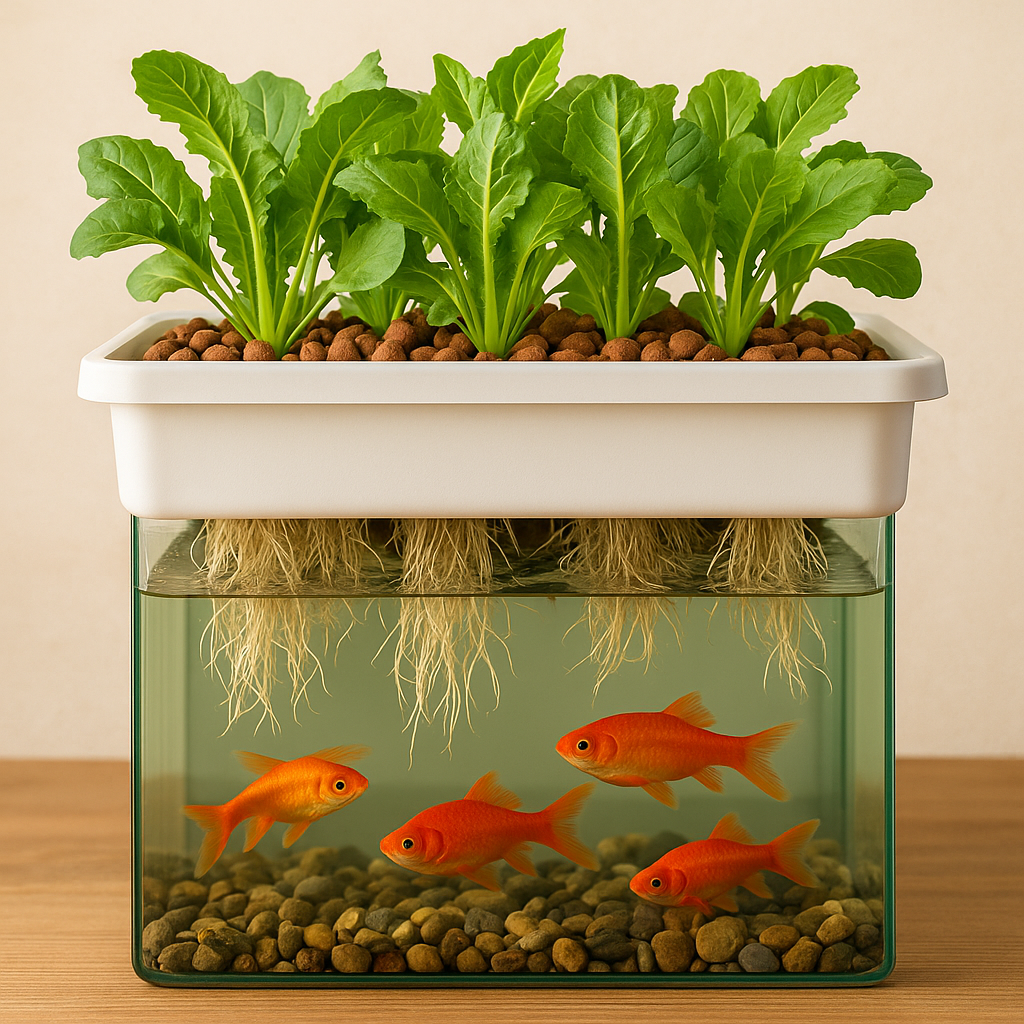
Scientific Insights: What Research Says
You don’t have to just take my word for it—science is right there in your corner, too. As you dig into your own journey with hydroponics vs aquaponics, it’s honestly exciting to see how the research backs up what gardeners experience in real life.
Take this study on leafy vegetable growth in aquaponic versus hydroponic systems: it shows that aquaponics, especially with the right lighting, can deliver yields that sometimes even outshine traditional hydroponics. Pretty cool, right? But here’s something reassuring—a meta-analysis comparing crop yields in aquaponics and hydroponics found that, even though hydroponics might take a slight lead in overall yield, the difference really isn’t all that significant.
So, whether you’re leaning toward the streamlined science of hydroponics or the closed-loop magic of aquaponics, you can trust that both systems are more than capable of giving you healthy, thriving plants.
At the end of the day, the hydroponics vs aquaponics debate is less about which system is “better” and more about which adventure fits your personality, your space, and your dreams for your garden.
Conclusion
If you crave simplicity, precise control, and quick results, hydroponics might be exactly what you’re looking for. But if sustainability, learning opportunities, and the excitement of nurturing a full ecosystem light you up, aquaponics could be the adventure you need. The hydroponics vs aquaponics decision comes down to what fits your lifestyle. Take a moment to reflect—do you want the responsibility of caring for fish, or would you rather keep things as streamlined as possible? Are you short on time, or do you enjoy diving into new routines and challenges? What fits your unique space and budget? Ultimately, whichever system you choose, you’re doing more than just growing plants. You’re creating a personal haven, establishing a meaningful daily ritual, and—who knows—perhaps laying the groundwork for a future business.
FAQs
Which system is cheaper to set up?
Hydroponics usually costs less for small spaces; aquaponics has higher startup costs but may save money long-term.
Can you switch from hydroponics to aquaponics easily?
Yes, but you’ll need to add fish tanks and biological filtration. It’s a fun next step if you start simple.
What fish and crops do well in aquaponics?
Leafy greens, herbs, and tomatoes thrive. Tilapia and goldfish are common, easy-to-care-for choices.
Are these systems eco-friendly?
Both are more efficient than traditional gardening; aquaponics recycles nutrients, so it’s especially sustainable.
How much maintenance is required?
Hydroponics: check water and nutrients weekly.
Aquaponics: daily fish feeding and occasional water tests—worth it for many!

